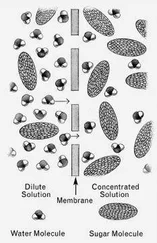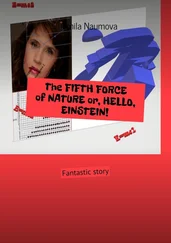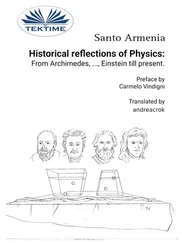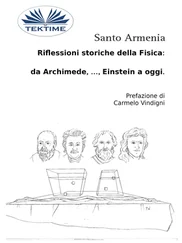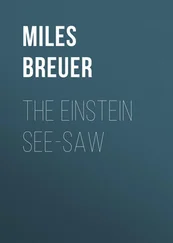Griffin took a deep breath. He was quiet for a while. “Okay,” he said finally, “I’ll do it. But I want you to understand my reason. I’m thinking of all the people I know who might be alternate candidates for the job. And I think they’d all probably screw it up, in one way or another. So I suppose I’ll have to do it myself. But let me tell you, up front, I’m not at all fond of administration, and I’m going to really hate the secrecy part. I want you to understand that.”
“I do understand, George,” said Preston. “I would say exactly the same thing, of course.”
Griffin frowned at him. He wondered what it was going to be like, working for a man who knows exactly how you think, who knows every thought you’ve ever had, up to now.
JOE RAMSEY EXAMINED HIMSELF IN THE GOLD-FRAMED oval mirror. CONGRESSIONAL STAFF MEMBER AND SPECIAL ASSISTANT TO CONGRESSMAN JONATHAN MATTHEWS, D.-OREGON read the gold-embossed business card wedged into the mirror frame. He’d been very clever to work on the Matthews campaign while he was finishing law school in Eugene. Otherwise, he would have been doomed to the usual indentured servitude at some big Portland law firm, spending his most productive years in some back room pounding a computer terminal, doing Lexis and Nexis research and writing briefs for the partners who interacted with the clients and pulled down the big salaries.
Here in D.C., however, he was the point man for his very own congressman. Since Jon had just been elected for his first term, Joe was in on the ground floor. It was he who interviewed most of the visitors and made the decision on who would be allowed to see the Man and who would be sent on their way after a brief discussion of why they were here, with maybe a gallery pass to the House.
Joe loved his job. He worked in this unique environment where most of the key decisions of the legislative body of the most powerful nation in the world were being made by twenty-four-year-old staff members like himself. He was living in a town where there were four women for every man. And he was making contacts that would land him a good position later — if and when.
The phone on his desk buzzed, and he looked at his schedule. The next appointment was with one A. Lang from the Tallahassee Environmental Coalition. Probably something about protecting alligators and bullfrogs. However, the appointment had been requested by the lobbyist from PetroGen, one of Jon’s biggest contributors. He lifted the receiver, said that he was ready now, and walked to the reception room.
A. Lang turned out to be a woman, quite a good-looking young one, actually. The “A.” stood for Alice. He noticed that his hand tingled when she shook it and wondered if that meant something special. He hoped so.
“I’m here,” she explained, “to voice the opposition of my group to the SSC project in Texas.”
“I’d like very much to hear about that,” Joe said, radiating sincerity and concern, “and I know Congressman Matthews will be interested.” He led her to his office and suggested that she join him on the sofa rather than sit on the less comfortable chair before his desk that he used for quick-turnaround interviews. “Tell me about it, Alice,” he said, trying to remember what the hell this project was. A dam, perhaps?
“Our group is organizing opposition to the Superconducting Super Collider project in Congress,” she began. “Congressmen Boehlert and Eckart have been opposing it for several years, and Congressman Boehlert is supposed to be on TV tonight talking about his opposition to it. When the project was announced by President Reagan in 1987, it was supposed to cost $4.4 billion, but the price tag has risen to $11 billion and is still going up. Last year the House voted 232 to 181 to kill the project, but the congressional leadership played some tricks, and it was funded anyway, I’m here to convince you that Congressman Matthews and the other new members of the House should oppose it vigorously as an unnecessary budget-breaking boondoggle.” She explained that high-energy physicists were digging a circular fifty-seven-mile-long tunnel into the subterranean limestone south of Dallas and filling it with a big radioactive accelerator. She gave him a copy of an as-yet-unreleased GAO report predicting that the costs would rise above $12 billion.
Joe fetched a yellow legal pad from his desk and began making notes. Jon might be interested in this one. “This is a Department of Energy project,” he said, phrasing it as if it were a statement instead of a question. She nodded. “Jon is on the appropriations subcommittee that handles the DOE budget,” he said. “The subcommittee on energy and water.”
“I know,” she said. “It’s very impressive that a new congressman was able to land such an important committee assignment,” she added and smiled.
“Jon was very pleased that the leadership recognized his ability to contribute in that area,” Joe said, thinking of the marathon bargaining session that had produced the assignment and the unsavory concessions and promises to tobacco-state legislators that had been necessary to get it.
Joe listened attentively as Alice continued her spiel. She stated that the cost of the project was out of control due to irresponsible management, that the design kept changing and getting more expensive, and that the money would be better spent in more people-oriented sectors of the government. She told Joe about the enormous consumption of electrical energy that the SSC would require, and the amount of oil, natural gas, and coal that would have to be burned to supply that power. She described the impact of the resulting CO 2on the greenhouse effect and global warming. She described the use of fluorocarbon-based solvents by the project, and how this would damage the ozone layer. She described the drain of water from the depleted mid-Texas aquifers to supply the water needs of the machine. She described the vast quantity of limestone that would be removed to make the tunnel and the landfill problems that this would produce. She described the indigenous rabbits, deer, coyotes, raccoons, javalena pigs, armadillos, and prairie dogs that would be displaced by the SSC construction.
Joe made a few notes, but he was growing discouraged. Jon was not terribly interested in making speeches in support of displaced pigs, armadillos, and prairie dogs.
She gave him a graph showing participation by state in contracts for building the SSC. Oregon was near the bottom of the list.
That was interesting. If nothing else, he should write a letter in Jon’s name to the DOE, demanding an explanation. It might generate some additional contracts in Oregon. Joe put the copy of the chart in the ACTION basket on his desk.
Finally, almost as an afterthought, she mentioned that the SSC management was spending DOE funds on works of art to put on office walls, on decorative plants for reception areas, and on parties for employees.
“DOE funds? Are you serious?” Joe asked, suddenly alert. “You can prove this?”
“Of course,” said Alice. “It’s a matter of public record, if you’re willing to dig in the right file cabinets for it.” She produced copies of spreadsheets showing SSC expenditures. “See,” she said, “here are the paintings. And here’s the expenditure for the 1992 Christmas party, almost $10,000, around $5 per staff member.”
“Wow!” said Joe. This was good stuff. He understood very well how the federal system was supposed to work, which apparently was more than these SSC jerks did. When you were spending taxpayer money, you never, never, never spent any of it on staff parties or pizzas or office amenities or drinks in topless bars or trips to Tahiti or anything else that you wouldn’t want to see in a newspaper headline. No way! Instead, you asked your contractors to provide the parties and drinks and trips and amenities as a no-cost contribution to the project. That way you got your parties, your ass was covered, and the contractors got a nice tax writeoff for their added expenses on the project. These SSC Mr. Science types, for all their white lab coats and slide rules, must have screwed up big-time.
Читать дальше




